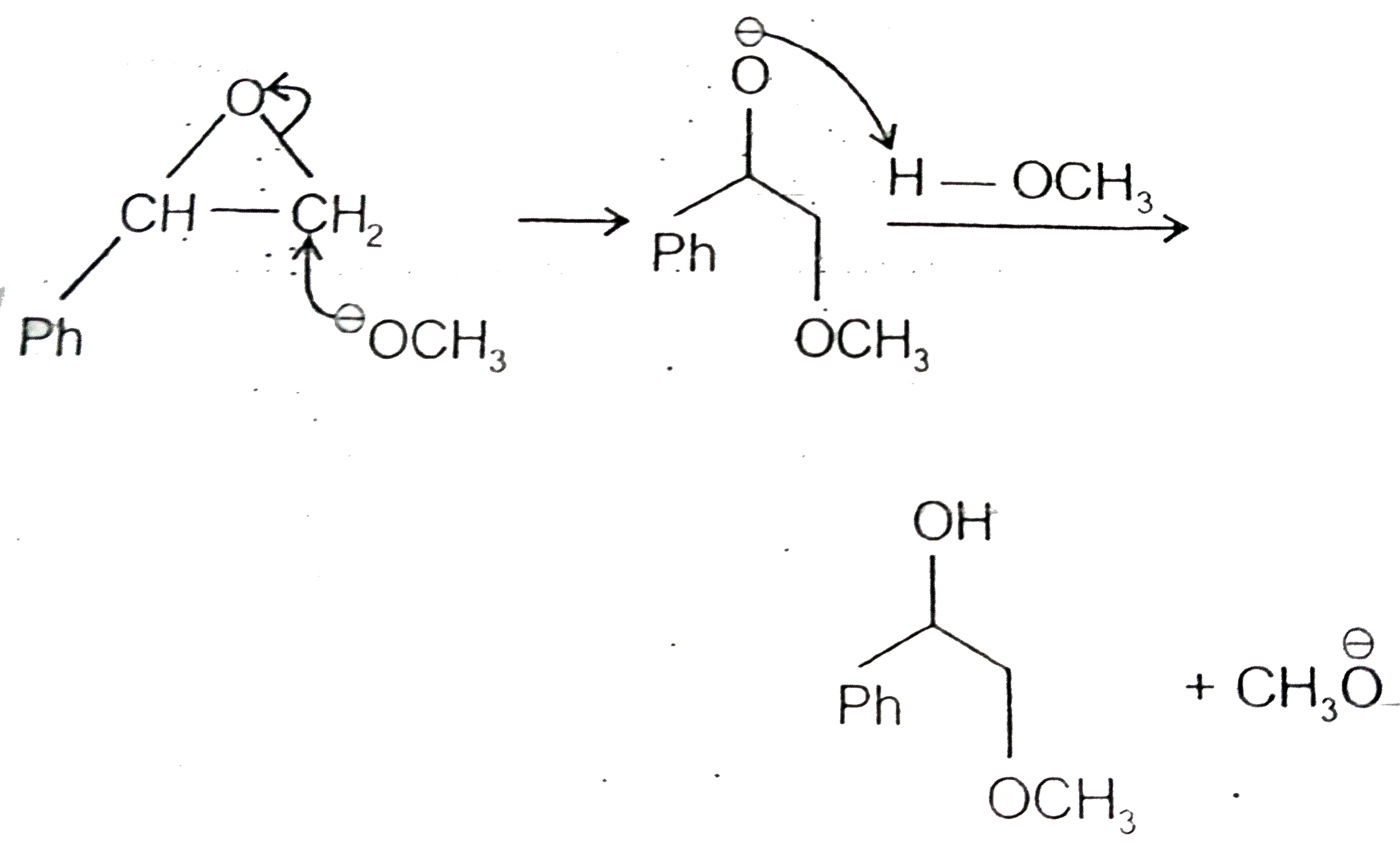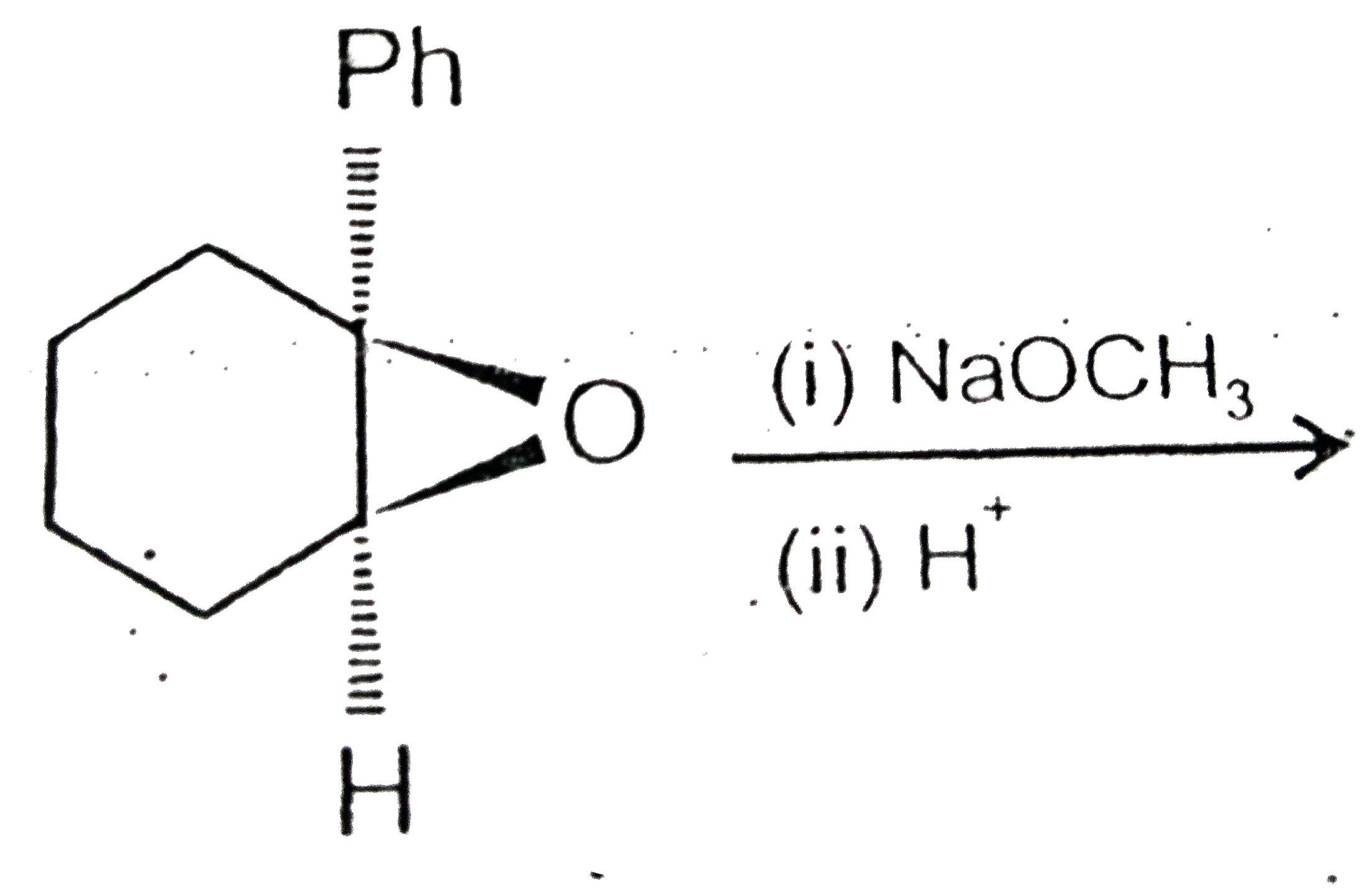When a nucleophile attacks the electrophilic carbon atom then
a tetrahedral alkoxide intermediate is formed
hybridization of C changes from sp2 tosp3
an electrically neutral product is formed
all of the above
The correct Answer is:D
all of the above
Topper's Solved these Questions
- ALDEHYDES, KETONES AND CARBOXYLIC ACIDS BOOK - MTG GUIDECHAPTER - ALDEHYDES, KETONES AND CARBOXYLIC ACIDS EXERCISE - NEET CAFE (PROPERTIES OF CARBOXYLIC ACIDS AND THEIR DERIVATIVES )
59 Videos
- ALDEHYDES, KETONES AND CARBOXYLIC ACIDS BOOK - MTG GUIDECHAPTER - ALDEHYDES, KETONES AND CARBOXYLIC ACIDS EXERCISE - NEET CAFE (USES OF ALDEHYDES, KETONES AND CARBOXYLIC ACIDS)
4 Videos
- ALDEHYDES, KETONES AND CARBOXYLIC ACIDS BOOK - MTG GUIDECHAPTER - ALDEHYDES, KETONES AND CARBOXYLIC ACIDS EXERCISE - NEET CAFE (PREPARATION OF ALDEHYDES AND KETONES)
16 Videos
- ALCOHOLS, PHENOLS AND ETHERSBOOK - MTG GUIDECHAPTER - ALCOHOLS, PHENOLS AND ETHERSEXERCISE - AIPMT/NEET
21 Videos
- BIOMOLECULESBOOK - MTG GUIDECHAPTER - BIOMOLECULESEXERCISE - AIPMT/NEET (MCQS)
19 Videos
Similar Questions
Assertion : Carbonyl compounds take part in nucleophilic addition reactions.
Reason : These reactions are initiated by nucleophilic attack at the electron deficient carbon atom.
View SolutionAldehydes and ketones are amphoteric. Thus they can act both as acids and bases. Under acidic conditions, the carbon of the protonated canbonyl group is much more electrophilic, reacting even with weak nucleopphilie. Carbonyl compound gives nucleophilic addition reaction. In this reaction the nucleophilic attack proceeds the elecrophilic attack.
Carbonyl compounds gives nucleophilic addition with
View Solution
Knowledge Check
(A) Carbonyl compounds take part in nucleophilic addition reactions.
(R) These reactions are initialed by nucleophilic attack at the electron deficient carbon atom.AIf both (A) and (R) are correct and (R) is the corect explanation of (A)BIf both (A) and (R) are correct but (R) is not correct explanation of (A)CIf (A) is correct but (R) is incorrect.DIf (A) is incorrect but (R) is correctAssertion : Carbonyl compounds take part in nucleophilic addition reactions.
Reason : These reactions are initiated by nucleophilic attack at the electron deficient carbon atom.AIf both assertion and reason are correct and reason is correct explanation for assertion.BIf both assertion and reason are correct and reason is not correct explanation for assertion.CIf assertion is correct but reason is incorrect.DIf assertion as well as reason are both incorrect.The most susceptible compound to nucleophilic attack at the carboyl carbon among the given bellow is
AMeCOClBMeCHOCMeCOOMeDMeCOOCOMe
Attack by a strong nucleophile such as CH3OΘ (Methoxide ion ) on an epoxide occurs at the least hindered carbon similar to an SN2 reaction

Attack by a weak nucleophile such as MeOH . Can occur only when the epoxide has been protonated so that a better leaving group is formed under acidic condition weak nucleophile attacks more substituted carbon to give final product .
What would be the major product of the given transformation ?

View SolutionAttack by a strong nucleophile such as CH3OΘ (Methoxide ion ) on an epoxide occurs at the least hindered carbon similar to an SN2 reaction

Attack by a weak nucleophile such as MeOH . Can occur only when the epoxide has been protonated so that a better leaving group is formed under acidic condition weak nucleophile attacks more substituted carbon to give final product .
What would be the major product of the given transformation ?

View SolutionAssertion : Acetone is less reactive towards nucleophilic addition than acetaldehyde.
Reason : The alkyl groups hinder the nucleophilic attack on carbonyl carbon atom.
View SolutionAldehydes and ketones are amphoteric. Thus they can act both as acids and bases. Under acidic conditions, the carbon of the protonated canbonyl group is much more electrophilic, reacting even with weak nucleopphilie. Carbonyl compound gives nucleophilic addition reaction. In this reaction the nucleophilic attack proceeds the elecrophilic attack.
Carbonyl compounds gives nucleophilic addition with
View SolutionAssertion : Acetone is less reactive towards nucleophilic addition than acetaldehyde.
Reason : The alkyl groups hinder the nucleophilic attack on carbonyl carbon atom.
View Solution
